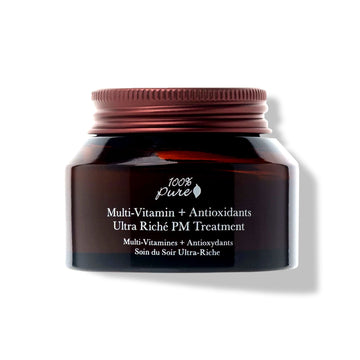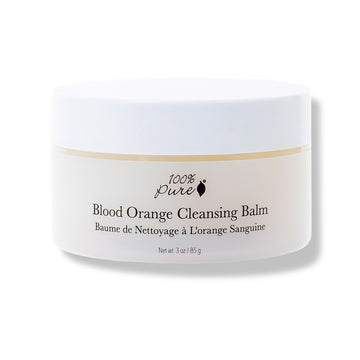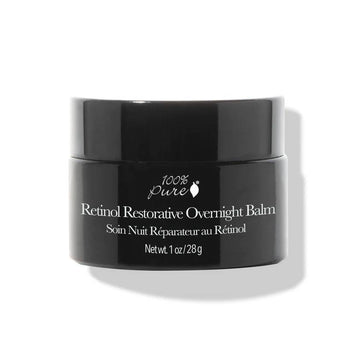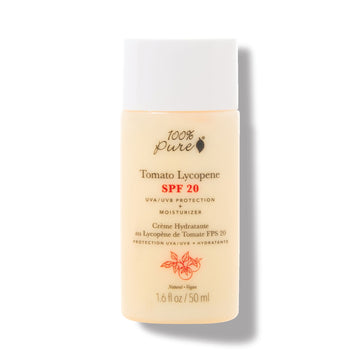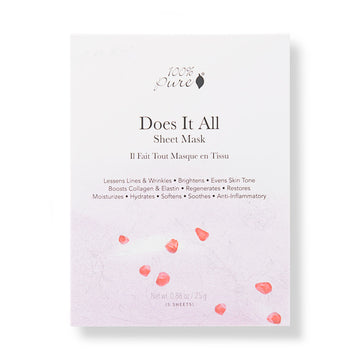How you can use balms, lotions, and retinol products to boost your bedtime routine
Written by: 100% PURE®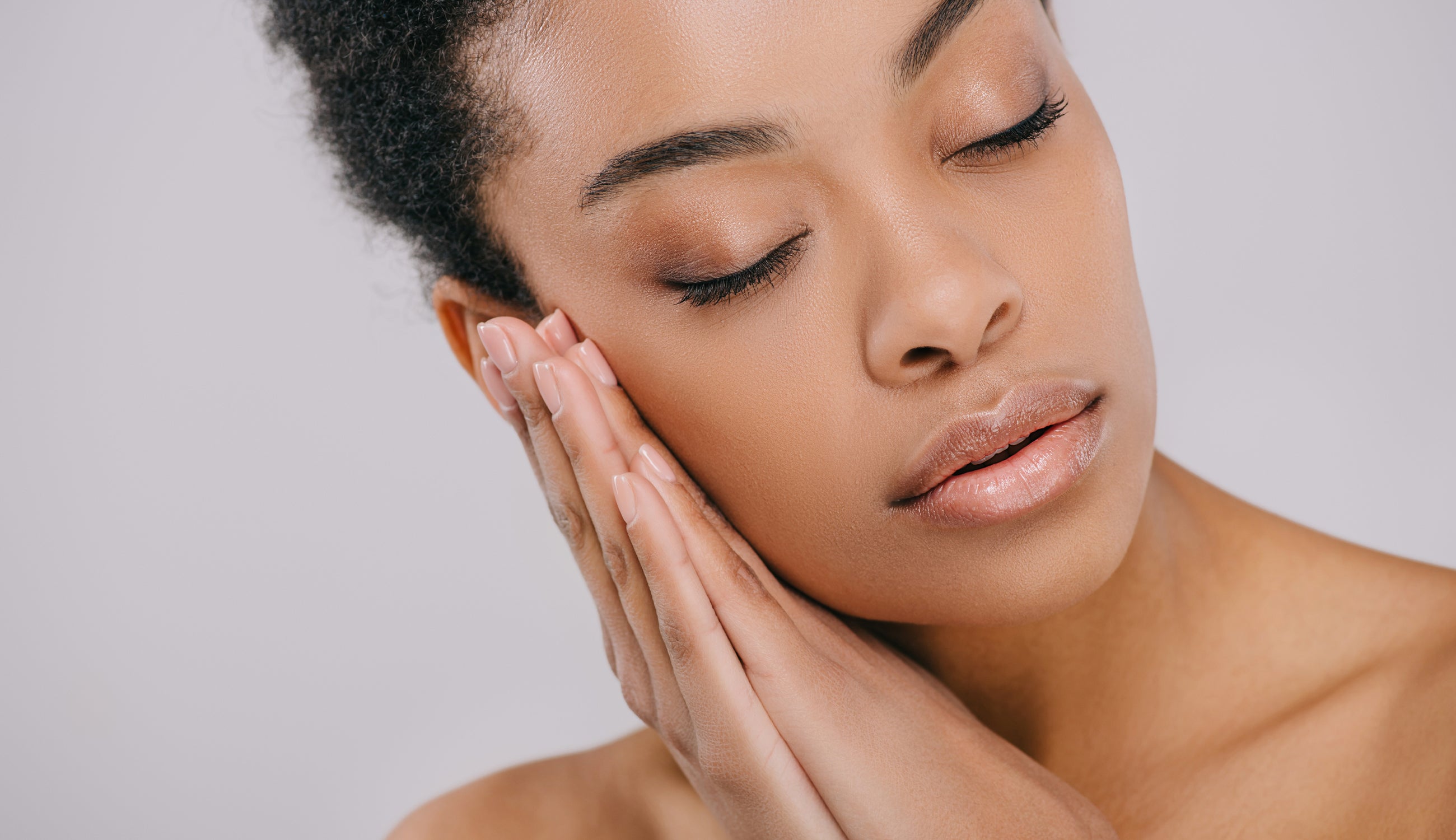
The culture surrounding the nighttime skin care ritual borders religious. It celebrates a routine that replenishes your skin and has an oddly holistic, intimate side to it. For instance, there is an entire category for nighttime skin care routines on Youtube, not to mention the elaborate Korean skin care routine, which is distinguished for including as many as 10 products!
If you’re looking to get serious about your skin care regimen, you don’t necessarily need ten products. However, if your routine currently consists of simply washing your face (period), it might be time to expand upon your process. Adding an evening regimen assists with nurturing your skin, and equipping it with the vitamins and fatty acids it needs to effectively repair itself.
A nighttime skin care routine differs from a daytime regimen in that the night is essentially ‘down’ time for our skin. The late hours of the evening are a respite from the daily exposure that skin faces: pollution, weather, stress, and free radicals. Each heavily contributes to the development of fine lines and wrinkles, uneven texture and tone, and more.
In regards to this skin ‘magic hour’, any vitamin-infused or restorative products you apply before bed are going to work most effectively at night. Many also find that they prefer to apply heavier balms, serums, and creams at night. This is the only time when the weight of heavier products won’t bother you as much as it would while going about your daily business.
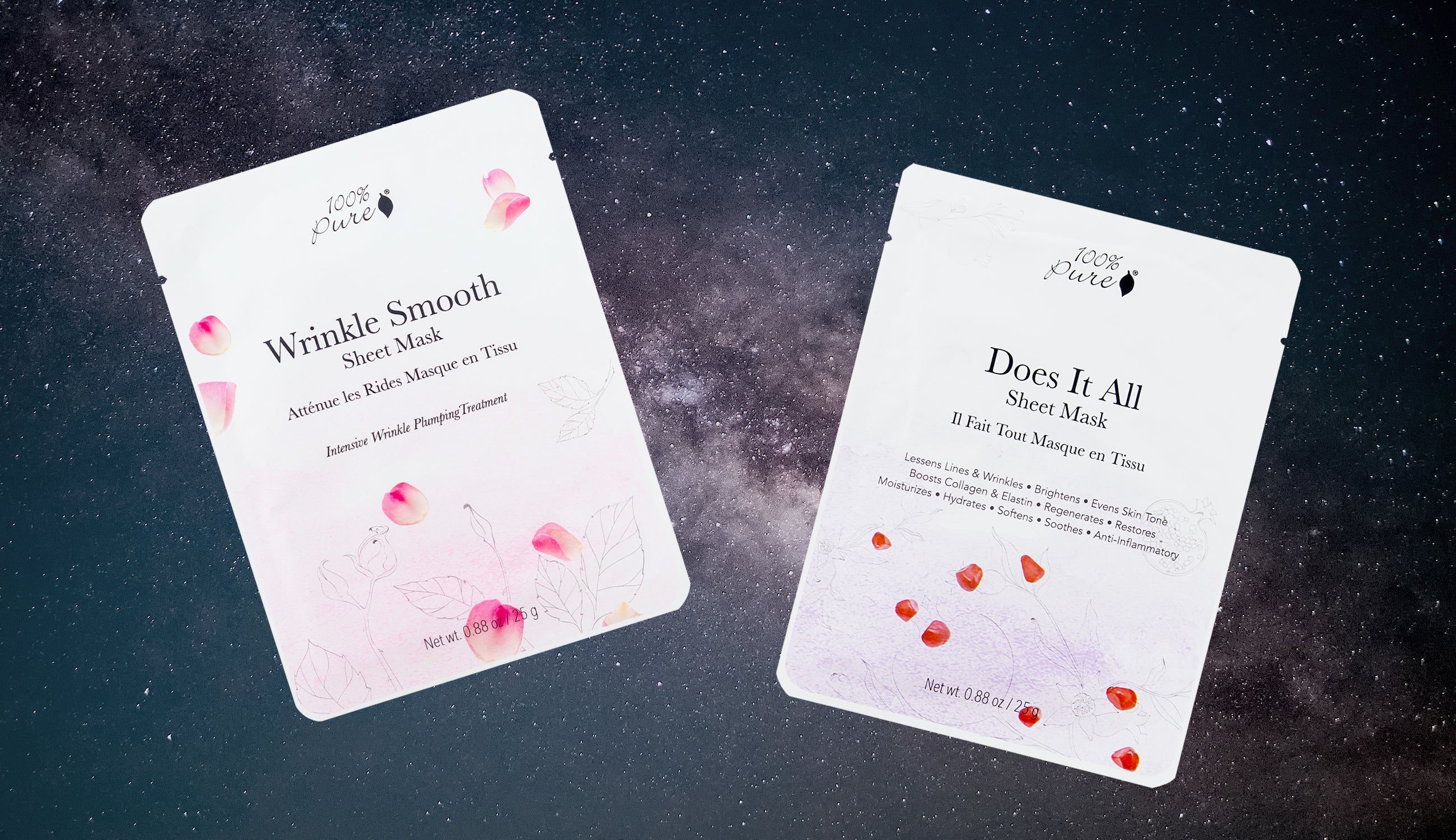
Elaborate skin care routines might seem intimidating, but your personal routine need only be as complicated as you want. However the key – day or night – is in weaving your products into a foundation of three steps: cleanser, toner, and moisturizer. These steps are important because even the gentlest cleansers can leave the skin a bit stripped of its natural oils. Toner restores your skin’s pH balance, and the moisturizer rehydrates your skin. No matter what you add at night, make sure these 3 are still invited to the party.
This foundation is solid, but it’s encouraged to add a fourth step: a special skin treatment based on your unique needs. A treatment like a sheet mask is ideal, which can be worn for 15-30 minutes before bed, after tonight and before moisturizer.
Serums are another excellent treatment choice for night, because they’re packed with vitamins and intense hydrators like hyaluronic acid. They are more concentrated than night creams, designed to deliver targeted nutrients for targeted results, and will help reinforce the hydration provided by your toner, to be locked in by your moisturizer.
While you might feel intimidated by the amount of products out there, there are some especially beneficial ingredients to keep an eye on; if you’re just beginning your skin care journey, these should be seen as staples in your new regimen.
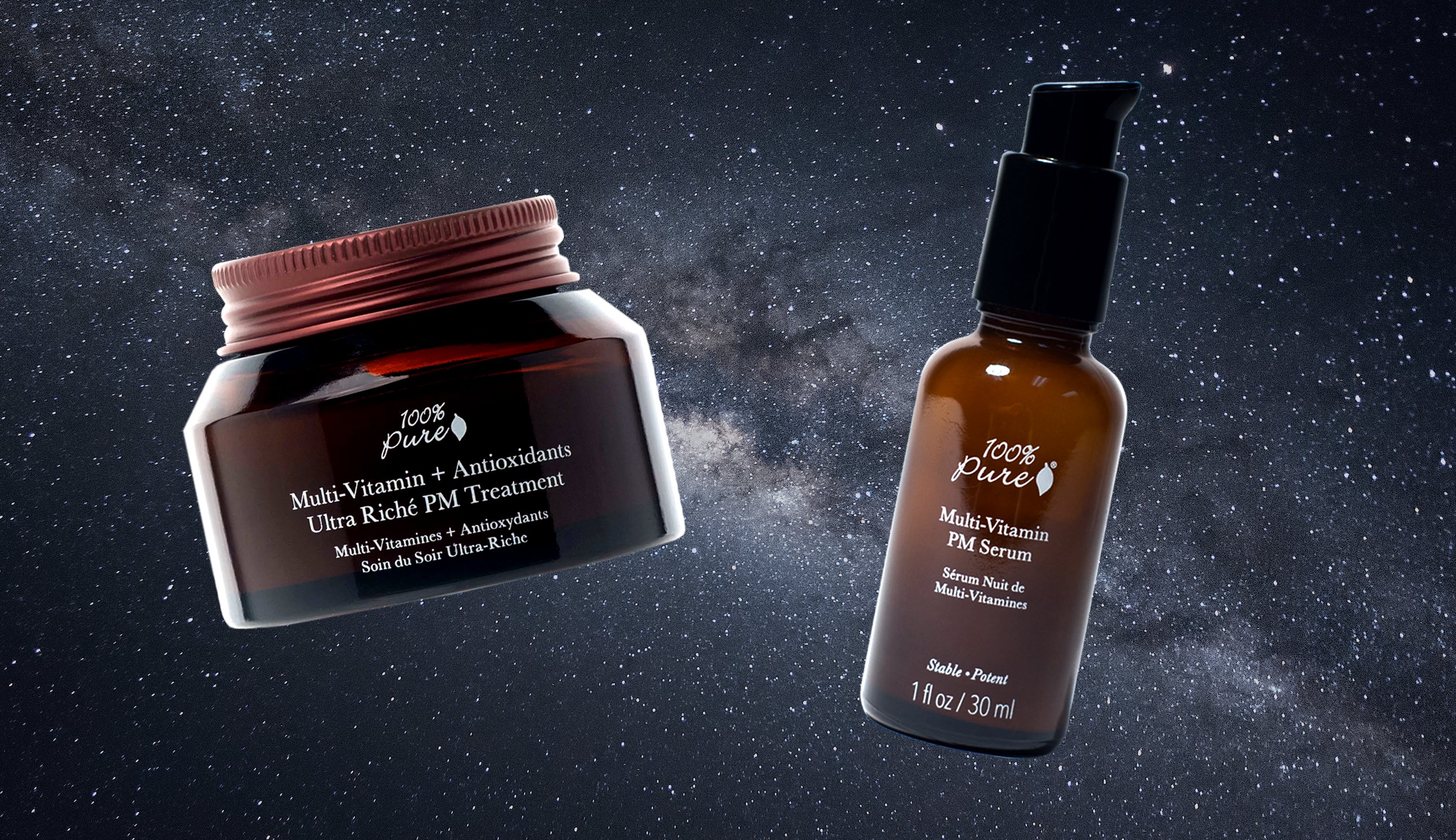
Salicin
Salicin is a natural acne treatment ingredient found throughout skin care, and for good reason! This special component is a beta-glucoside derived from willow bark, and because it is oil soluble, it can penetrate the skin and reach the lipid barrier.
Much like its relative salicylic acid, salicin is known as a key ingredient for deep-cleaning acne cleansers and treatments. It also works as a gentle exfoliant by loosening dead skin cells and clearing out pores, allowing more blood flow to the face, and encouraging tissue to repair itself.
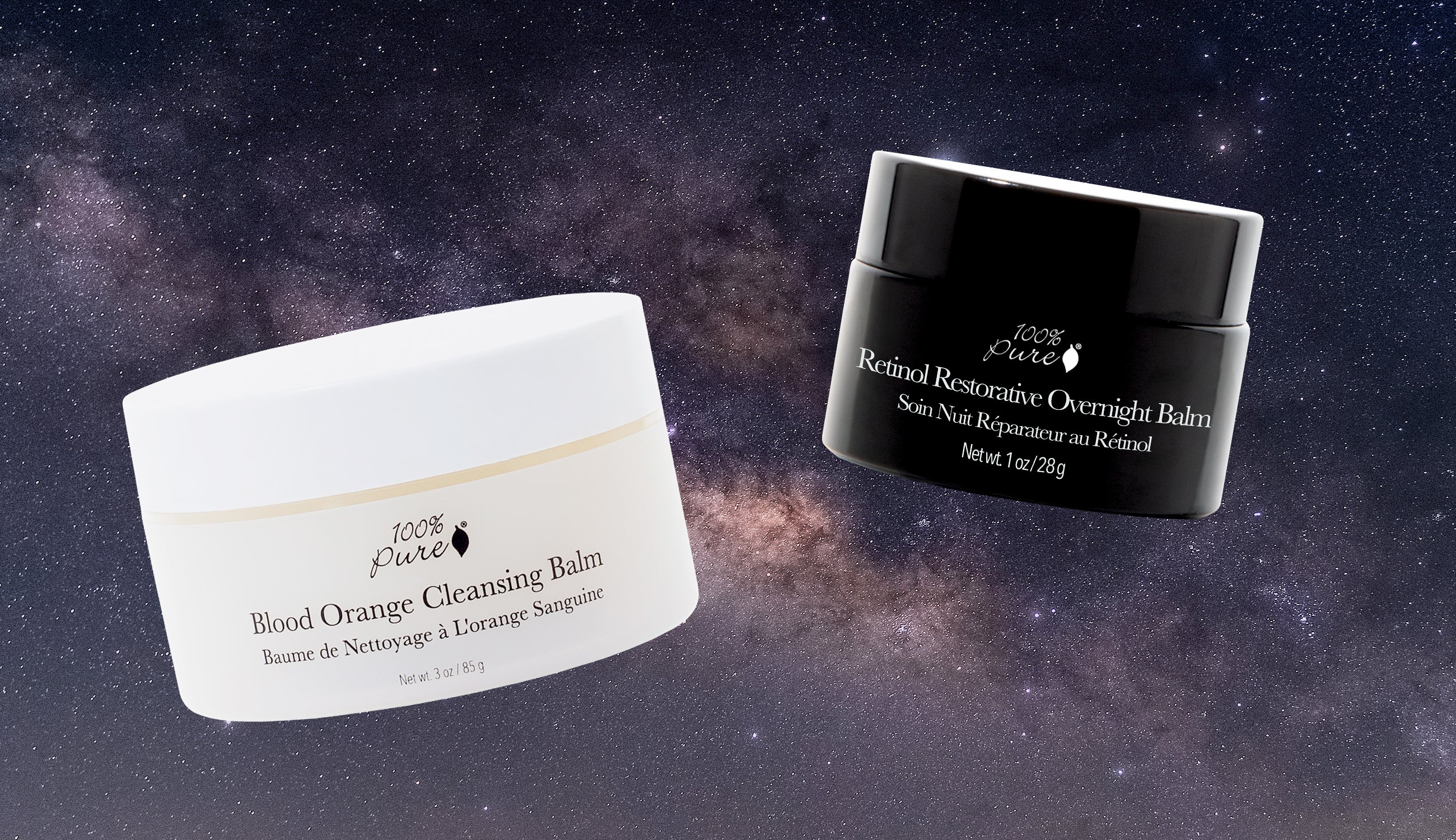
Retinol
Retinol is considered the gold standard of PM skin care staples, as it’s said to reduce fine lines and wrinkles by promoting collagen and elastin. Additionally, it promotes circulation by building new blood vessels in the skin, which lends to that healthy, glowing complexion.
That being said, it does come with a few caveats. Just as with salicin or salicylic acid, ultra-concentrated retinol serums may not need to be used every day, especially for sensitive skin. Meanwhile, a moisturizer containing retinol can be applied nightly, as this form is less concentrated and contains more emollients for gentler absorption. Our Retinol Restorative Overnight Balm is gentle enough to be used most nights of the week, and contains soothing jasmine essential oil to tone skin (and usher you into dreamland).
Retinol should be treated strictly as a nighttime treatment, as it can leave the skin quite photosensitive. For this same reason, if you are using any retinol products, you should always use sunscreen during the day.
Blood Orange Essential Oil
The previous skin care ingredients have been classics for years, so it may come as a curveball to see simple little blood orange essential oil listed as a staple among them. Be that as it may, we might start seeing a lot more products carrying this decadent citrus in the coming years! In addition to being an excellent source of vitamin A, studies have shown that blood orange essential oil is anti-inflammatory and may even contain antifungal properties.
In our Blood Orange Cleansing Balm, blood orange essential oil is the key ingredient in keeping this cleanser balanced. Avocado, coconut, and olive oil allow it to easily remove makeup from your face while nourishing and hydrating the skin, without pulling or tugging. Blood orange essential oil in this cleanser makes it soothing, degreasing, and brightening while preventing further oil-buildup in your T-zone.
While a skin care regimen should start with cleansing, moisturizing and toning, treatments and serums allow for someone to customize their routine for overnight repair. That being said, there is one more important step to a routine for overnight skin repair: a good night’s sleep. Sleep plays a huge role in preventing your skin from rapidly aging, so it should be said that no matter what products you use, they will only work in the long run if you’re getting your beauty rest.
- Tags: October-2019
We carefully hand-select products based on strict purity standards, and only recommend products we feel meet this criteria. 100% PURE™ may earn a small commission for products purchased through affiliate links.
The information in this article is for educational use, and not intended to substitute professional medical advice, diagnosis, or treatment and should not be used as such.





